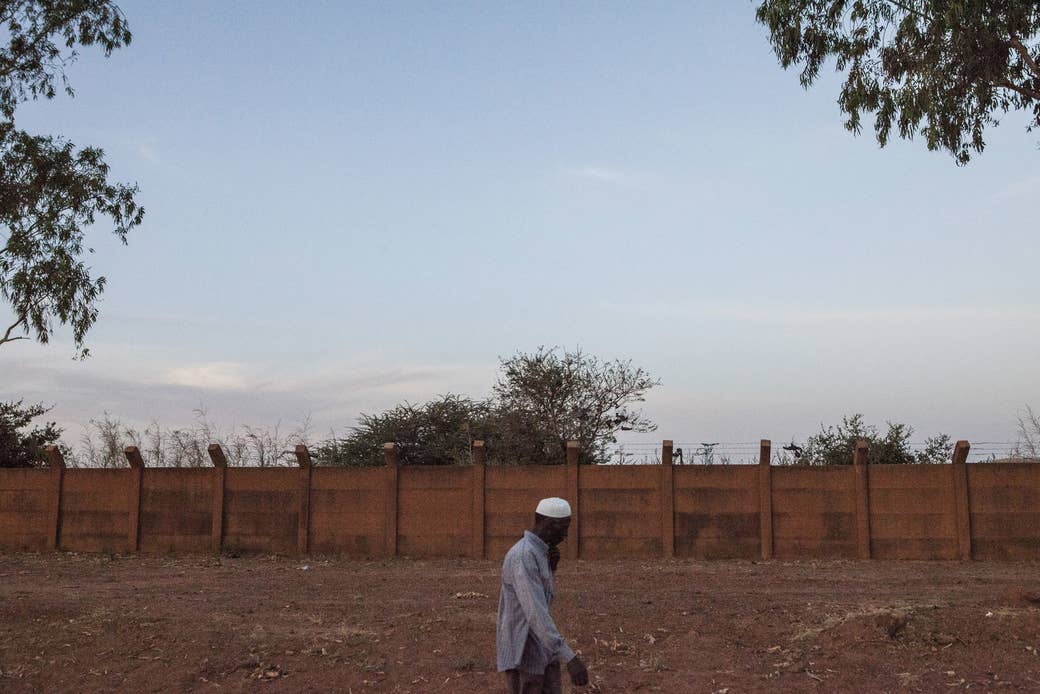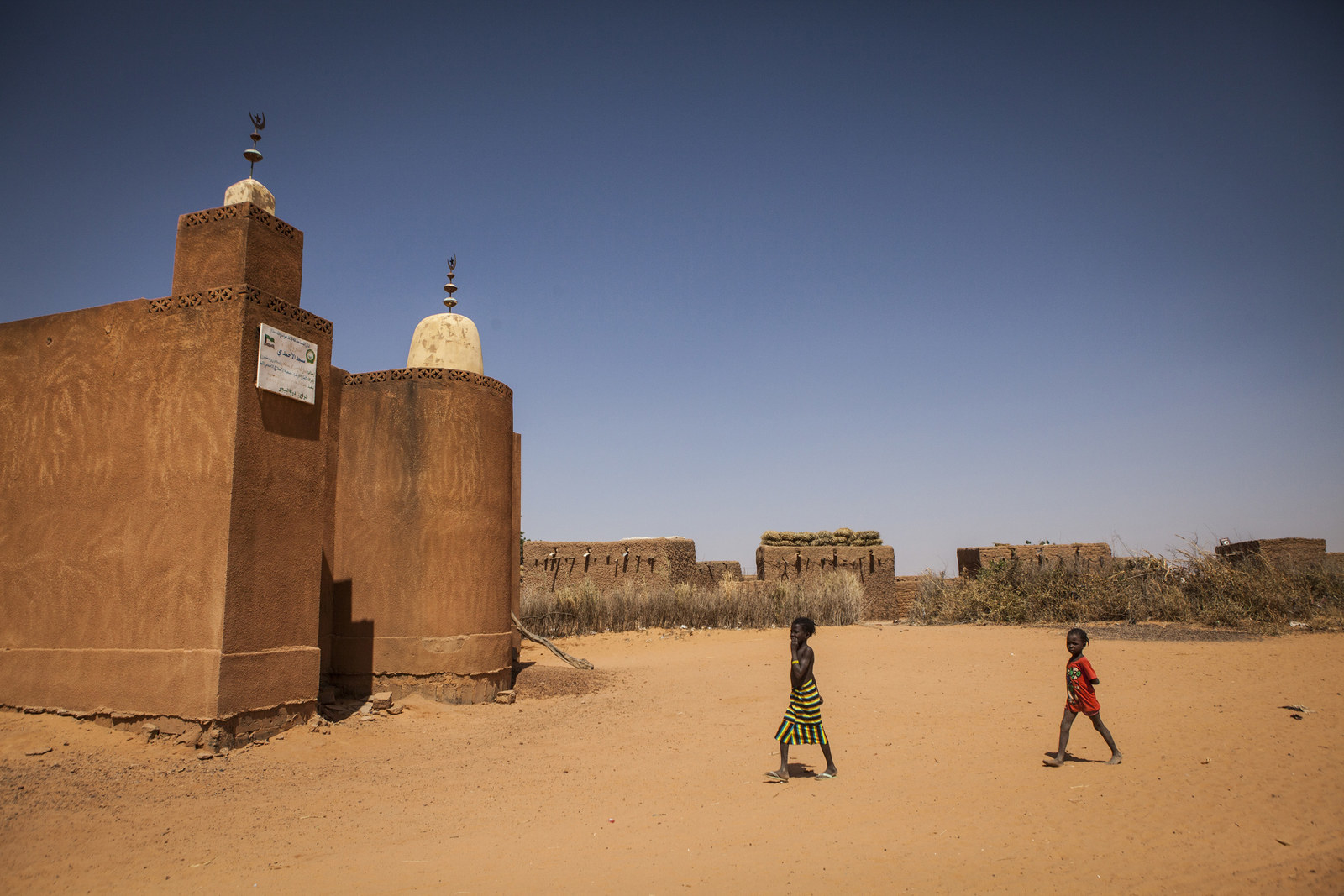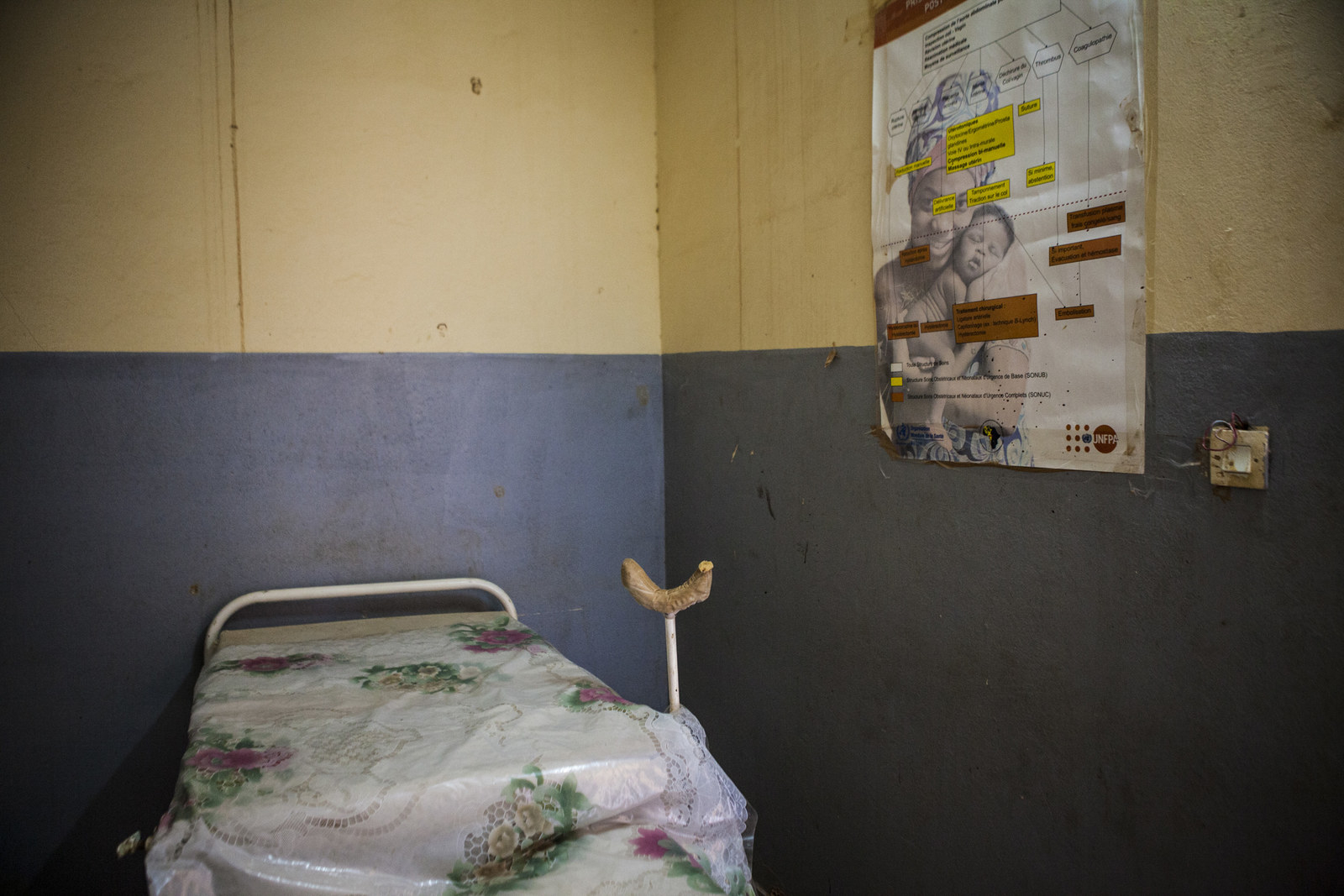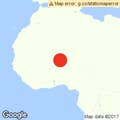
NIAMEY, Niger — Each time he drives past the barbed wire–topped walls of the US drone base in Niger’s sun-scorched capital, Daouda Dakoye is convinced American snipers will pick him off.
“If you even go near there, they will shoot you,” the 34-year-old teacher said as he approached the site in Niamey one evening in October.
The fact the base sits on a busy highway minutes from the main airport does nothing to reassure Dakoye, who recently returned to Niger after a decade in the US.
“I know America. You can be shot in broad daylight,” he muttered, flooring the accelerator as he sped past the sand-colored walls, a flash of white hangar visible before he swerved the car sharply round a corner.
For most people in Niger, the presence of the world’s biggest military superpower in the vast, landlocked West African country remains shrouded in mystery.
But as the US escalates its military presence across Africa, hostile public perceptions are part of the public relations maze in a continent where Western military intervention has often been met with anger. In Niger, that path has become more difficult since the government asked the US to begin using armed drones for the first time.
A disastrous, hours-long militant ambush on Oct. 4 left five Nigeriens and four US soldiers dead, and put Niger on the map for many in the US. But the reverse was also true. The US troop deaths were the first time many in Niger realized the country was hosting several US bases, let alone 800 troops — exceeding even the numbers deployed by former colonial power France, which has taken a lead in a burgeoning fight against Islamist militancy.
“I won’t lie to you: People don’t like it. In Niger, nobody knew America had 800 soldiers [stationed here] until after the attack. We see the French soldiers coming and going, building things, transporting materials. But the American soldiers — I mean, where are they? What are they hiding?” Dakoye said.
The attack scuppered a US effort to keep a low profile in places like Niger. Washington has long viewed the gaggle of militants operating around the Sahara as a threat to US national security, and an explosion in troop numbers has been taking place almost entirely under the public radar. US troops conduct around 10 missions a day in Africa, or 3,500 exercises, programs, and engagements per year, the US military’s top commander for Africa recently revealed. And some 1,200 troops are deployed in the Sahel, the semi-arid band below the Sahara that stretches from Niger to Somalia in the east.
“They’ve got drones, they’ve got air bases, they’ve got all those things. You can’t tell me it’s just for training.”
Allegations of civilian fatalities have recently trailed behind US-backed missions and could continue as the Trump administration seeks to expands a drone empire already stretching across at least 24 African countries, often in shadowy outposts the US government has long denied even existed. Officially, at least, the US doesn’t take part in combat missions in the Sahel.
In Niger, few believe the official line. “They’ve got drones, they’ve got air bases, they’ve got all those things. You can’t tell me it’s just for training,” Moussa Kaka, a resident who lives a few minutes from the drone base, told BuzzFeed News.
The first time he heard a Reaper drone taking off, he said, the vibrations caused the light fixtures in his house to shake. “It scared me, it scared my children. But my question is, with all their sophisticated equipment, which I have heard can see a bird from the sky, how did these Americans not see the jihadists coming?”
In fact, on the afternoon of Oct. 4, at least one Reaper surveillance drone left the US base in Niamey and beamed back a live video feed minutes after the ambush began. It showed at least a dozen militants pushing their motorbikes through the village’s sandy trails — in order to prevent noise from the engines giving away their position, a Nigerien official with the country’s anti-terrorist unit told BuzzFeed News.
Following the fiasco, Niger’s defense minister asked the US to begin flying armed drones. The Predator MQ-9s will be docked in the sprawling mud-hut city of Agadez, where a $100 million base is being clawed out of the desert plateaus that are a haven for both al-Qaeda and ISIS-linked groups.
But that too comes with its own problems.
Even among Nigeriens who’ve come to believe foreign military help is needed to push back against the extremists, misinformation and a lack of transparency from the government could easily cause a backlash.
“People who are already misusing Islam can twist the situation and say, ‘They want to sow discord among Muslims,’” said Cheikh Boureima Daouda, an imam in Niamey who leads a regional council of religious leaders that advises governments on countering extremism. “That can be a gift for radicalization. The situation remains very delicate.”

In many of the places where armed drones would likely be used in the future — remote, impoverished villages like Tongo Tongo where people eke out lives as herders, farmers, or artisanal miners — most residents are unfamiliar with drones.
That may soon change. Spurred by the September 2012 attack on the US mission in Benghazi, Libya, that killed US Ambassador J. Christopher Stevens and three other Americans, the US has increasingly shunned conventional troops for drones and small units of highly mobile elite Special Forces in Africa.
“If these drones can be used in the bush, where the jihadists operate, I won’t shed a tear; nobody will. Anybody out in the bush is with them and deserves whatever happens to them,” said Zika Adamou, a 56-year-old farmer from Tongo Tongo, who said he’d learned of drones for the first time following the ambush there.
He paused briefly.
“But if these drones come to the village, we wouldn’t like that. One of our loved ones could die that way.”
“So long as we don’t have social justice, we can mobilize all the drones in the world, and this problem won’t go away.”
On a scorching October afternoon in Ouallam, some 65 miles north of Niamey, a group of Nigerien soldiers watched impassively as a strange scene played out in front of the town’s scruffy court houses. A suspected militant had been brought to the garrison outpost, which is also home to a US forward operating base and has been under a state of emergency since March. A gangly Nigerien soldier tapped his AK-47 impatiently and stood behind the suspect, who was kneeling, handcuffed, with a black scarf tied over his face. A handful of passersby averted their eyes as they moved quickly past.
It’s the kind of troubling behavior that has long plagued underfunded militaries battling against militancy in West Africa. Now the spotlight on Niger has led to calls for greater scrutiny both of the US troops’ role there, and that of those they’ll be fighting alongside.
“US capacity-building efforts to help West African security forces better respect human rights is very important,” said Corinne Dufka, associate Africa director at Human Rights Watch. “But given the recent authorization to engage in offensive operations, we’re also concerned about the parameters of US operations. The US needs to be transparent about the scope of any operations and fully respect human rights.”
Others fear the Nigerien government is pushing a military solution for a problem they say is first and foremost rooted in poor governance.
“The state has left all these men unemployed in villages. Someone who doesn’t even pray, who doesn’t know anything about Islam, how on earth is he going to create an Islamic State? It’s all rubbish. They’re being used as pawns by people who want to start wars,” said Boubacar Diallo, who runs a peace-building organization that advises the government. In the dozens of cases that he’s documented of young men signing up with Islamist militants, he's never seen one who did so because of religious ideology, he said.

Instead, an explanation can be found in villages like Mandolo, whose cluster of mud homes is surrounded by tall elephant grass. Since the Tongo Tongo ambush happened, the 76-year-old village chief said residents there now live in a permanent state of fear. A militant attack, they all believe, is a question of when rather than if.
Wearing a black turban tightly wrapped around his face, Yaye Souboubou said he’d heard militants often enticed villagers with incentives like bags of sugar and medicine for sick children. They handed out arms for self-defense. Even their sharia courts offered a form of justice, which was sometimes more than the state does, he said.
Souboubou waved at a dirt track cutting through the thick grass, where the nearest medical facility was half an hour’s walk away. “I’ve lived here for 76 years, and there’s no medicine. There’s nothing here,” he said.
“So long as we don’t have social justice, we can mobilize all the drones in the world, and this problem won’t go away,” said Mamane Touda, the head of a civil rights organization in Niamey. “If our heads of state think someone can come from outside and ensure peace inside the country…” He shook his head and smiled grimly.

